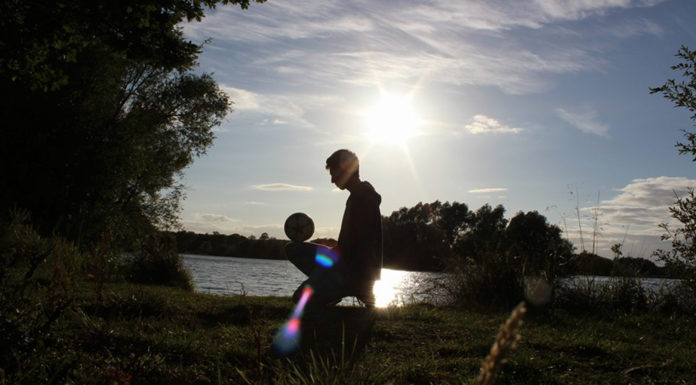Nearly a year after Argentina won the 2022 World Cup, we look back at the incredible celebrations that took place in Buenos Aires following the triumph.
I woke up with a start. I don’t know if I had even fallen asleep in the first place. The peaceful bliss of slumber had evaded me for several days, and staying asleep is usually one of my best virtues. I was nervous.
The uncertainty was killing me. It’s quite hot in Buenos Aires. I look at the table in my hotel room. There’s some of the Ugi’s pizza I bought left. I grab a slice of muzza and step out onto the balcony. A shockwave of lust blasts my senses. I’m still oblivious to everything around me. I’m in front of the Obelisk and Leo Messi’s Argentina are world champions.
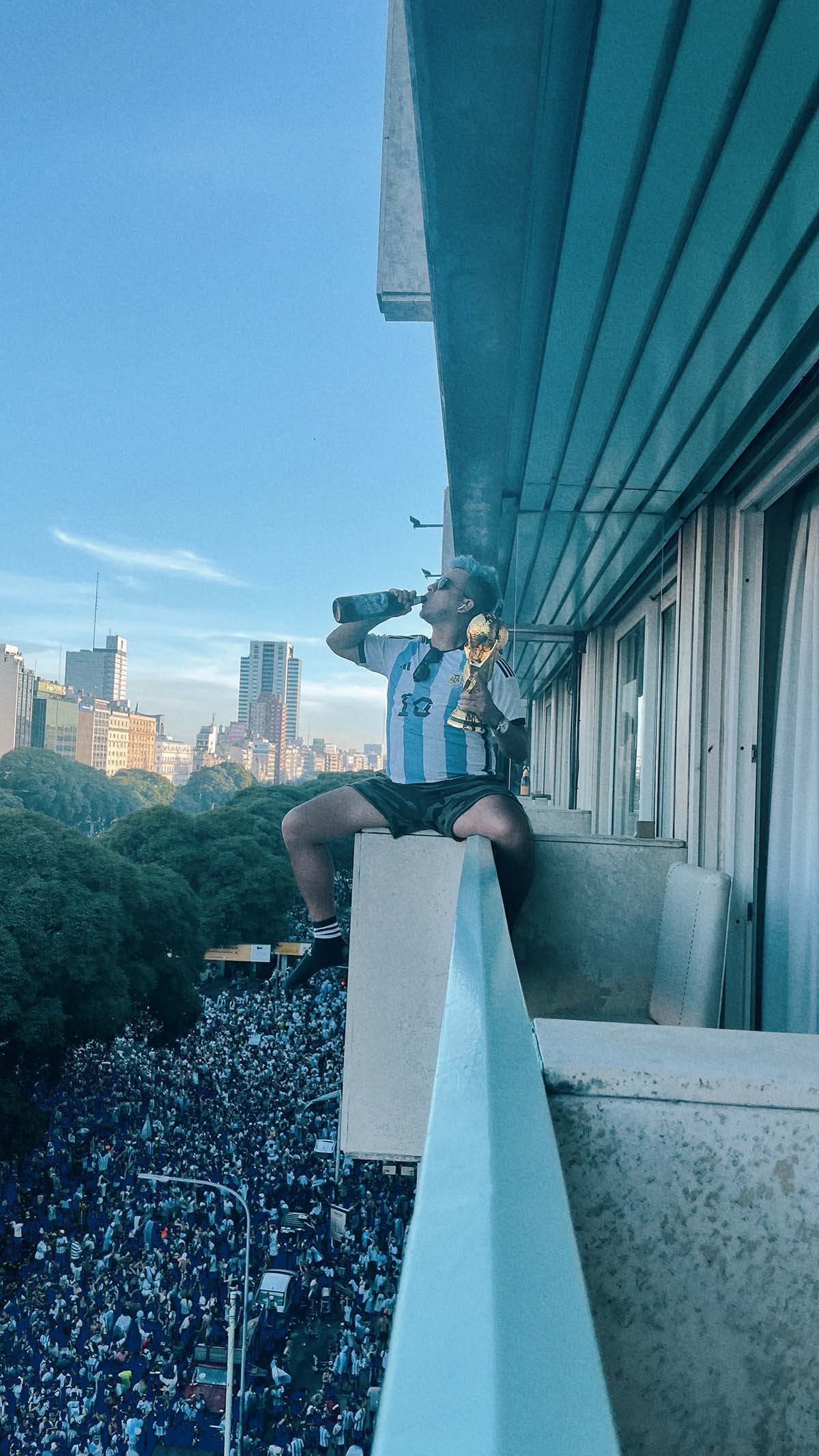
I understand that here you don’t sleep and that the party is not negotiable. I decide to get back to my old ways and go out. It’s 5 a.m. and the streets of Buenos Aires are alone, with the hangover from the greatest victory ever.
My hotel is opposite the Obelisco monument. In addition to my nerves, the sheer noise of the celebrations outside surely contributed to my lack of sleep.
The tension of doing my report on the World Cup final, the anguish of the match itself, and the anxiety to have enough battery and internet signal have left me in a state of shock.
I’d spent the whole day outdoors and got sunburnt. I didn’t even think to buy sunscreen. I look at my phone and I can’t keep up with all the messages I’ve received. I give up answering. Shards of glass bottles shatter with every step I take. LED advertisement screens light up the whole scene. I look up and gawk at the word ‘Champions’ projected on the Obelisco.
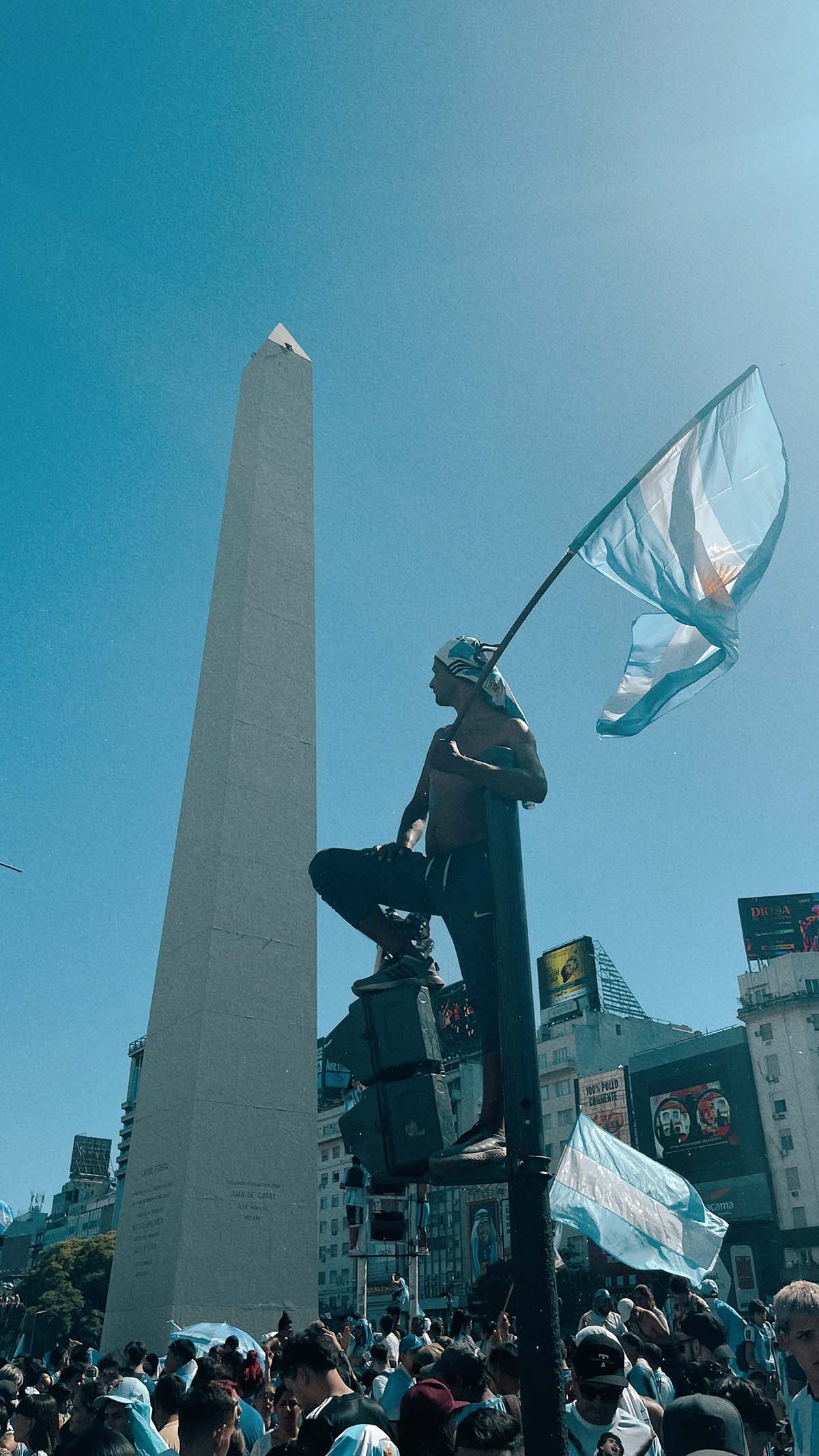
In my case, to find a story I have to make a real detour and explore. But right now in Buenos Aires there are as many stories as people on the street. Every single situation is a postcard.
I feel comfortable in this small state of emotional anarchy. For the sole purpose of making noise, a guy pours gas into the exhaust pipe of his motorbike so that fire comes out of it. There are couples kissing and friends drinking and chatting as they wander the streets because they understand that today you can’t go home early, not today.
As the lyric from Rosario-based band Colonikocolokio goes, “If the night hits, we did it well.”
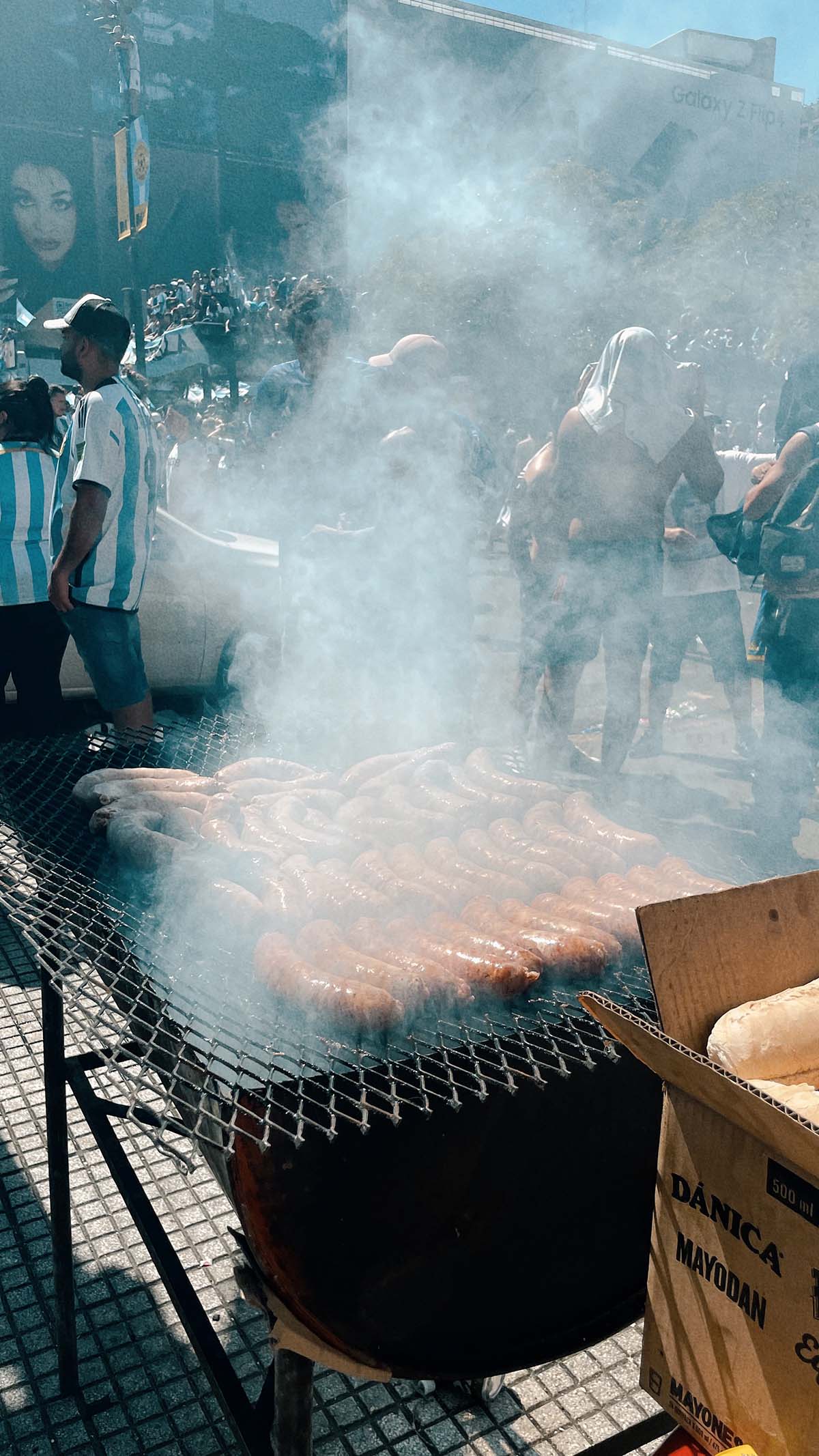
I smell meat cooking on the embers, that intangible national heritage. In a nearby car park they have a fire going for a barbecue. The car’s doors are open, cumbia music on, and from the roof of a car there is a man sitting on a plastic chair.
“Why?” I think to myself.
He just watches the people below, the ones who try to survive the morning by burping the chimichurri from the previous night’s choripán while they try to remember who they have to apologize to.
But as has been a recurring theme in my life, I think this man is on top of the world today. I am comforted by the sight of people dancing around a fire and I am thankful to witness this moment. Buenos Aires is one of the most extraordinary and vibrant cities in the world. Argentines have the virtue of turning a primitive act into something of unbearable beauty.
It is a pleasure to witness the most sincere passion they have for making any space a table for eating. They feel no guilt at seeing those who can’t stop for a moment and nibble on a bondiola ‘sanguche’ pass by. Because we are talking about a country of liturgies, and of climbing on places, silence is defeat.
How many times have they dreamt of this, I wonder. Silence and loneliness kill them, that’s why they get together to celebrate “with everything.” It’s the champagne party. Of promises to be kept tomorrow.


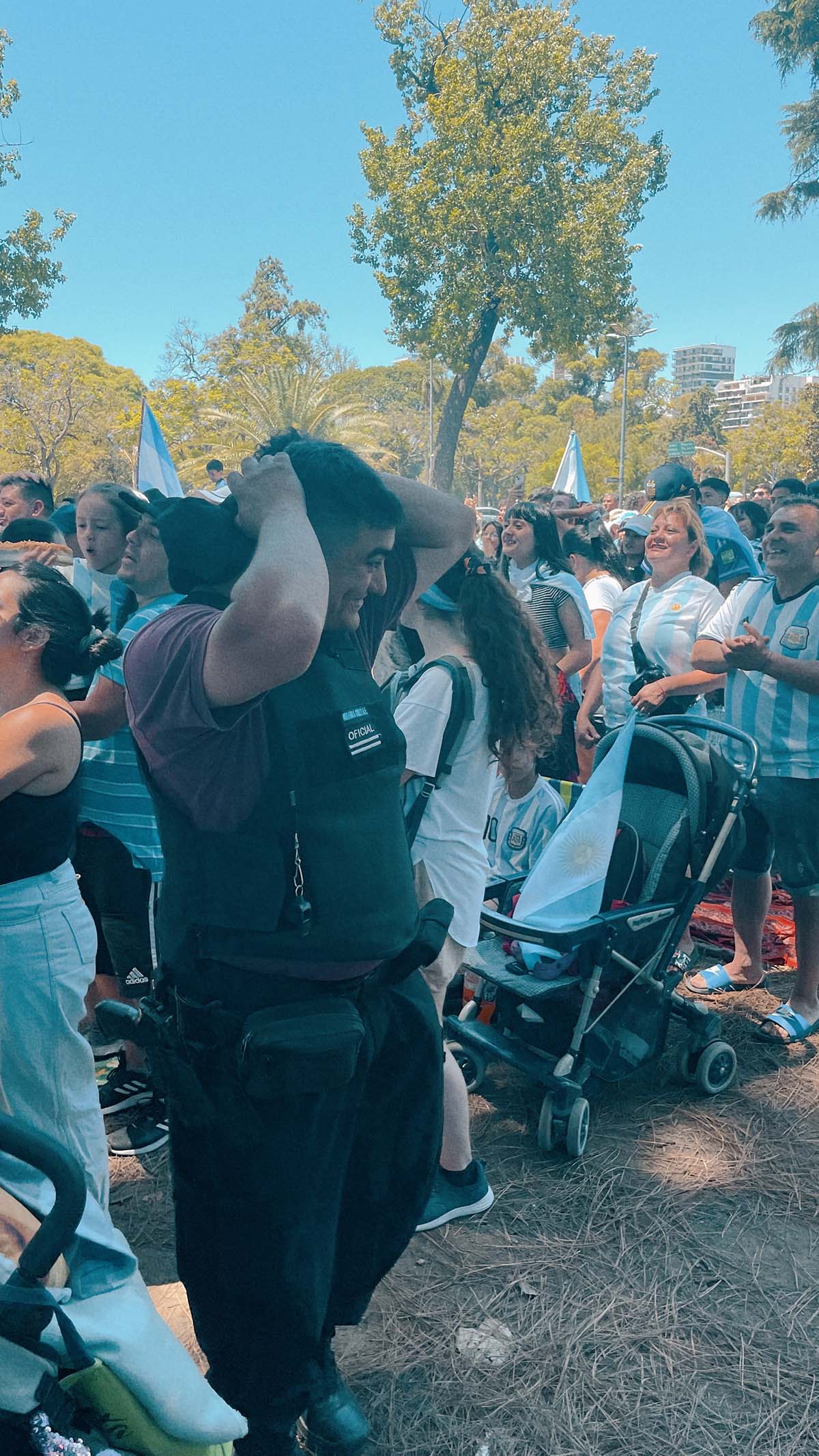
The beauty of having rules is being able to break them. And this occasion legitimizes the celebration contained from below to overflow upwards. It is about pride in inhabiting common spaces in a way that is normally not allowed. I understand that there is something tribal in raising a fist and climbing on anything when the party is at its most effervescent stage.
The truth is that it’s hard for me to measure the scale of the Argentine volcano’s eruption and the massive mobilization all over the country. Mostly because it has been celebrated horizontally and vertically. Before you knew it, a dummy with the national team’s jersey had already been planted on the top of a shop. A hypnotic and insulting tease for those who aren’t able to climb.
I swear that puesto de choris, or pop-up choripan stands, should be an international measure of time. I’ve never seen something set up so quickly in the midst of chaos. I conclude that, if Argentines don’t rule the world, it’s because they are doing other things. They’re probably climbing up something.
One thing was clear to the famous muchachos: their legacy could not stop at revolutionizing cancha songs and creating an anthem. They had to go further, to take the leap. “Our North is the South.” To turn upside down the whole establishment that they see so far away but feel so close to. To defy power and thus become true national folklore.
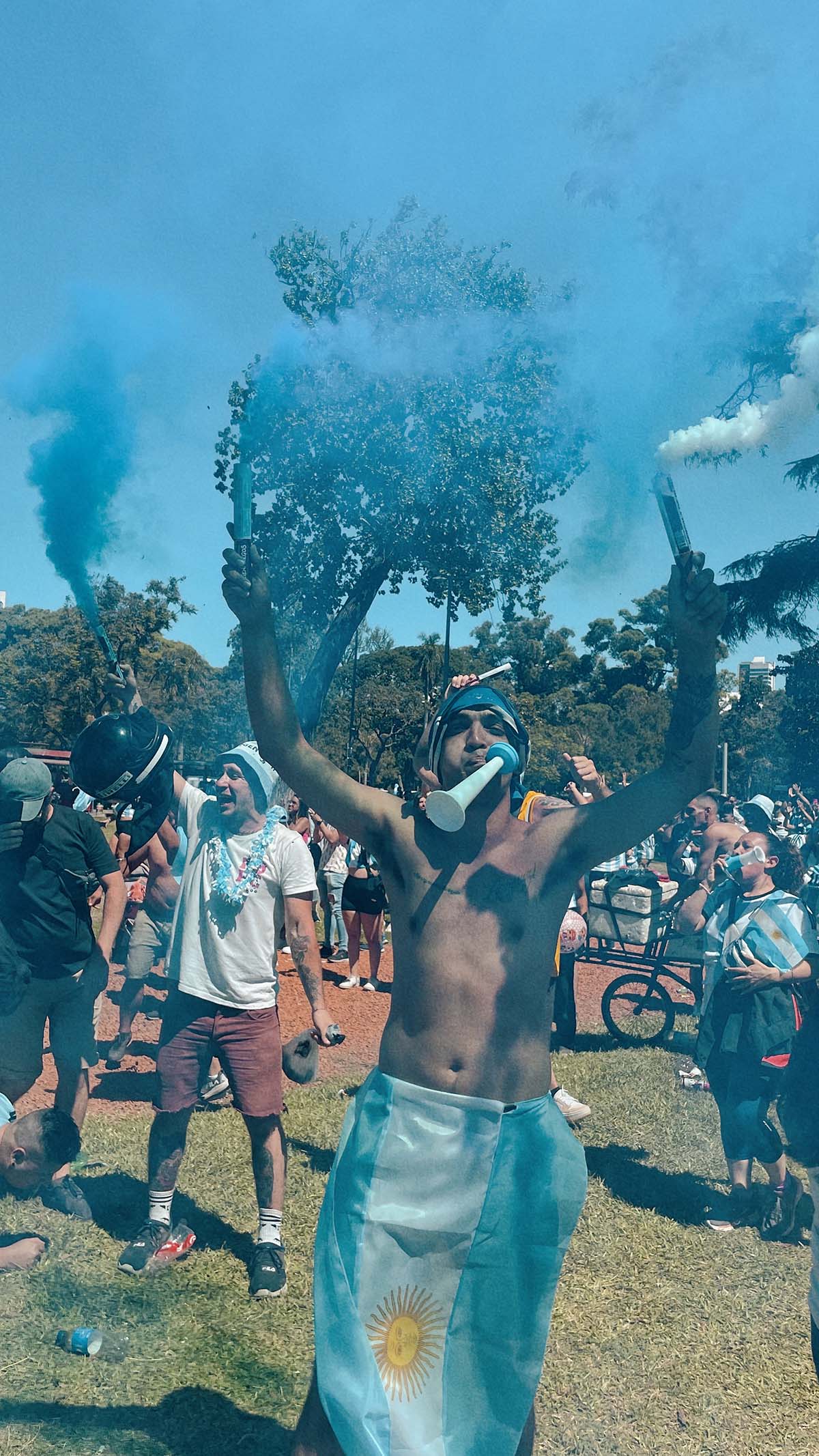


Because tomorrow, everyone will greet each other with a “Good morning, champion.” Because in Argentina it is celebrated in the most popular way. Because I am told that Argentines take a certain pleasure in the natural conquest of places that do not belong to them in their own right. And it is now that I understand it. It is impossible to describe their personalities without their passion for celebrating anything.
There is no tomorrow because it is the dawn of the fan. “They want to put me down and they don’t know how,” says one of the cumbia anthems. I no longer see fans of the national team, now I see vanguardists of a countercultural movement that defies even the greatest of laws, gravity. I have never seen so many feet in my life as in Buenos Aires.




